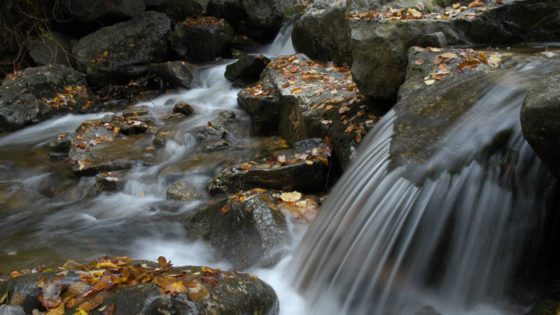Sweeney, B.W., R.L. Vannote, and P.J. Dodds. 1986. Freshwater Biology 16:39–48.
Summary
1. Soyedina carolinensis Claassen, a leaf shredding stonefly, was reared in a series of three laboratory experiments from early instar to adult on different species of deciduous leaves and at various constant and fluctuating temperature regimes.
2. Experiment 1, which involved rearing larvae on fourteen different leaf diets at ambient stream temperatures, showed that diet significantly affected larval growth and adult size but did not affect overall developmental time.
3. Experiment 2, which involved rearing larvae on five different leaf diets at each of three fluctuating temperature regimes (viz ambient White Clay Creek (WCC), ambient WCC+3°C, and ambient WCC+6°C), showed that: (i) adding 6°C to the normal temperature regime of WCC was lethal to 99% of the larvae regardless of diet; and (ii) warming WCC by 3°C did not affect developmental time but did significantly reduce adult size relative to adults reared at WCC temperatures on certain diets.
4. Experiment 3, which involved rearing larvae on five different leaf diets at each of five constant temperatures (viz 5, 10, 15, 20, 25°C), showed that: (i) temperature significantly affected the mortality, growth, and development time of larvae whereas diet only affected larval growth and mortality; (ii) temperatures at or near 10°C yielded maximum larval growth and survival for most diets; (iii) at 5°C, larval mortality was high and growth was low resulting in a few small adults for most diets; (iv) larval mortality was at or near 100% at 15°C regardless of diet; and (v) no larvae survived at 20 and 25°C.


